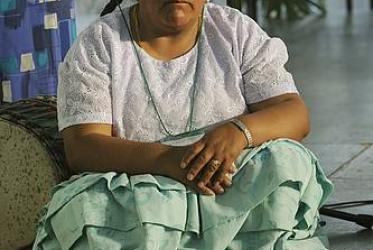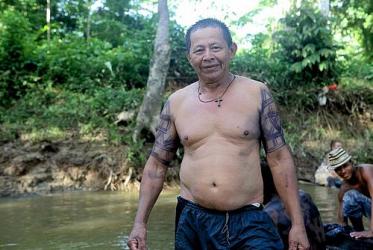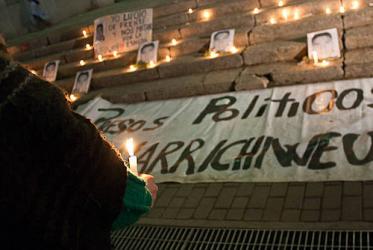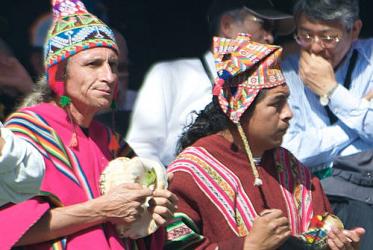Displaying 41 - 60 of 110
03 May 2012
Churches in Colombia support victims of land dispute
30 April 2012
Christian self-understanding in the context of indigenous religions
14 February 2012
Prophetic diakonia is an important tool of transformation
28 November 2011
WCC supports Ecuador’s Yasuni project
13 October 2011
Struggles against discrimination can benefit all
30 June 2011
Bolstering ecumenical peace-building in Colombia
24 February 2011
WCC Central Committee adopts statements on public issues
21 February 2011
WCC to strengthen ecumenical support for peace efforts in Colombia
08 December 2010
A young Mapuche speaks up for her people
06 December 2010











